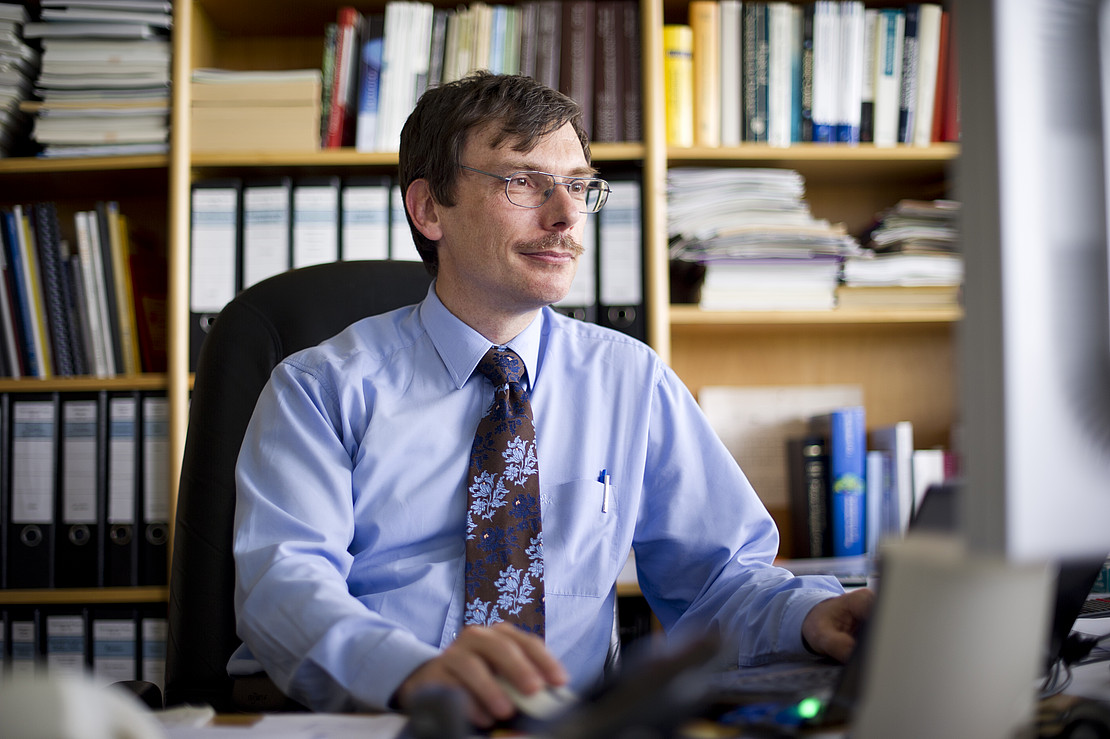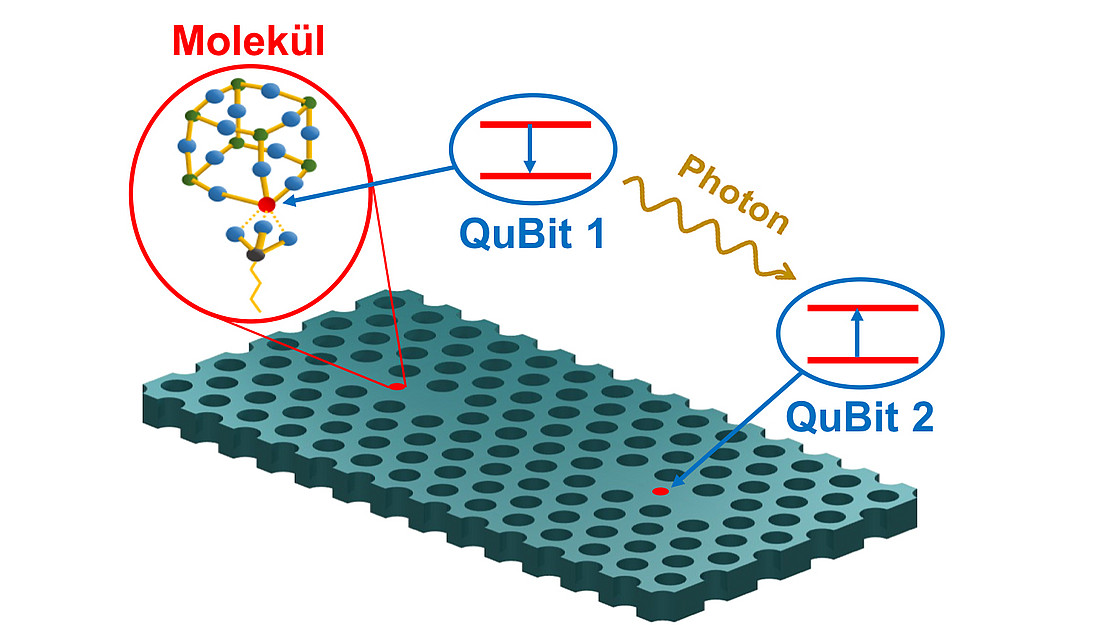This page contains automatically translated content.
Molecules as quantum bits: State of Hesse funds new LOEWE focus area
 Image: Blafield.
Image: Blafield. Image: University of Kassel.
Image: University of Kassel.The project, which is coordinated by the Department of Technical Physics (Prof. Dr. Johann Peter Reithmaier) at the Institute of Nanostructure Technology and Analytics at the University of Kassel (INA), is investigating new concepts in quantum technology in which specially synthesized molecules form the basis for storing quantum information (quantum bits). To this end, a hybrid technology platform is to be realized on the basis of a photonic chip on which individual molecules are linked to one another via light - similar to an electronic chip, but in which the conductor paths consist of miniaturized optical waveguides and the memory cells of individual molecules. This would provide a basis for scalable quantum processors that would be far superior to conventional binary computing systems.
"For this, fundamental questions have to be answered," says Reithmaier: "How can molecules be used as carriers for quantum information? How can their interaction with the environment be controlled so that both the information is not lost but can also be transferred in a controlled manner to spatially separated but identical molecules? This is where nature comes in handy, in that you can actually synthesize identical molecules at the atomic level on a molecular basis." In this respect, this new concept would in principle also be far superior to the concepts for quantum computers based on superconducting quantum chips currently favored by large companies such as IBM, Google or Microsoft. "However, only if it is also possible to integrate these molecules onto a solid-state platform at the chip level as well," says Reithmaier. If this project succeeds in quantum-optical coupling of molecules for the first time, the way will be open to scale up the level of complexity to application-relevant orders of magnitude with many such quantum bits. However, for the realization of a feasible quantum computer, many more fundamental questions need to be answered.
The LOEWE project "SMolBits" is being worked on by an interdisciplinary team formed by the "Center of Interdisciplinary Nanostructure Science and Technology (CINSaT)" and consisting of the following groups: Technical Physics (PD Dr. Mohamed Benyoucef / Prof. Dr. Johann Peter Reithmaier), Synthesis Chemistry (Prof. Dr. Rudolf Pietschnig), Experimental Physics I (Prof. Dr. Kilian Singer), Experimental Physics III (Prof. Dr. Thomas Baumert), Theoretical Physics III (Prof. Dr. Christiane Koch) and the Theory of Electrical Engineering and Photonics (Prof. Dr. Bernd Witzigmann).
The state of Hesse is funding "SMolBits" with approximately 4.4 million euros over four years. The start date is Jan. 1, 2019.
The president of the University of Kassel, Prof. Dr. Reiner Finkeldey, congratulated the participating scientists and said, "The success is tailwind in our plan to broaden the University of Kassel in cutting-edge research."
The State Offensive for the Development of Scientific and Economic Excellence - LOEWE for short - is a program with which the state of Hesse has been strengthening the research landscape and funding outstanding collaborative scientific projects since 2008.
Contact:
Prof. Dr. Johann Peter Reithmaier
University of Kassel
Head of Department Technical Physics
Director of the Institute of Nanostructure Technology and Analytics (INA)
Spokesman of the Center of Nanostructure Science and Technology (CINSaT)
Tel.: +49 (0) 561 804-4430
E-mail: jpreith[at]ina.uni-kassel[dot]de
Sebastian Mense
University of Kassel
Communication, Press and Public Relations
Tel.: +49 561 804-1961
E-Mail: presse[at]uni-kassel[dot]de
www.uni-kassel.de